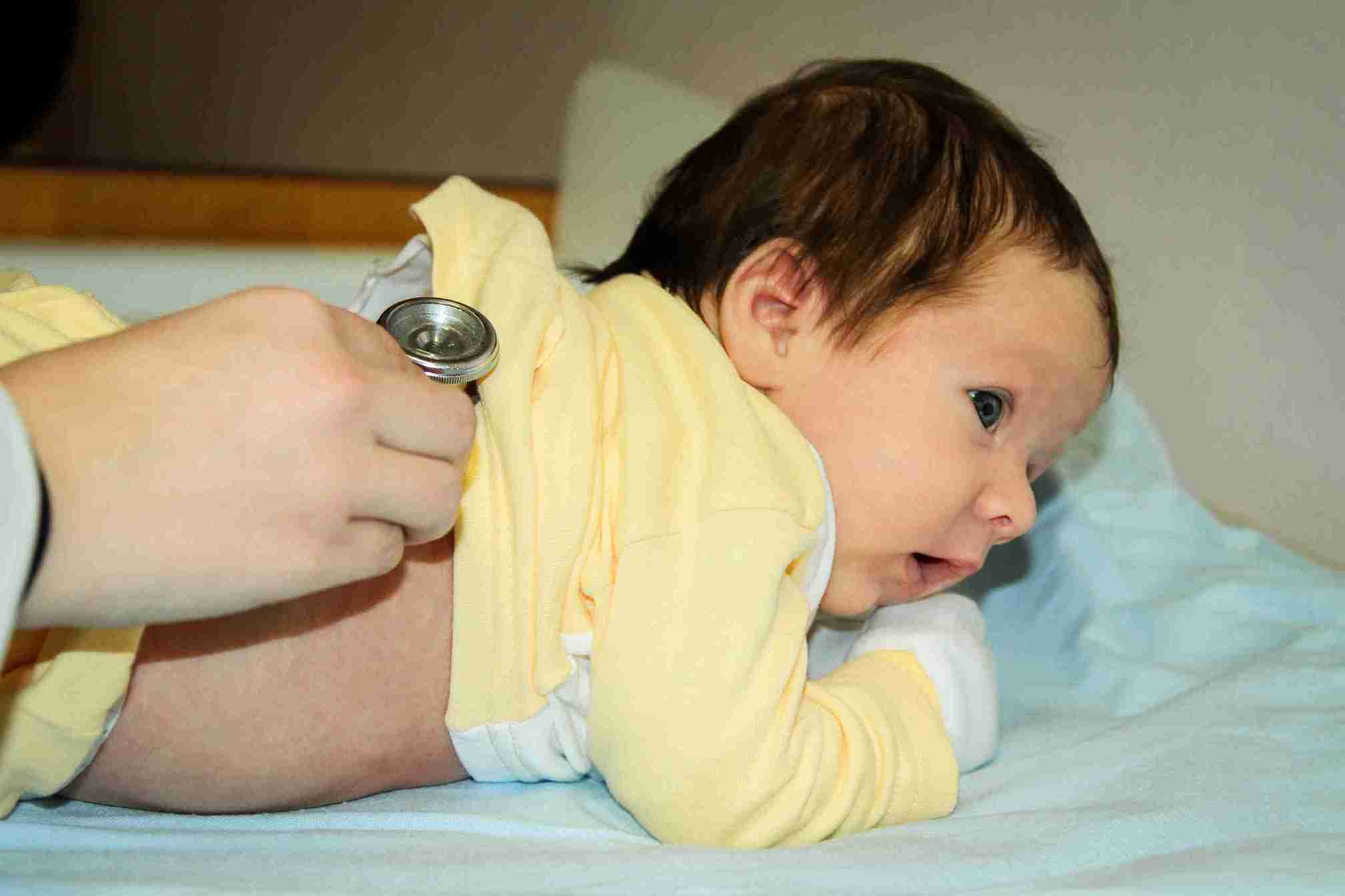
Bringing a new baby into the world is accompanied by joy and concern, particularly for first-time mothers and fathers. One of the most prevalent (though usually frightening) observations is abnormal breathing patterns in infants. It's instinctive to be alarmed when your baby unpredictably stops to catch its breath or gasps to breathe, then settles back down. Infant periodic breathing is normally part of normal development.
This comprehensive guide delves into its causes, types, and when to consult a doctor, providing reassurance and practical advice for anxious parents.

Regular infant periodic breathing is a normal pattern of breathing observed in most newborn infants, especially during sleeping. The infant can breathe faster for a couple of seconds and hold his/her breath for a brief time (usually 5–10 seconds) before breathing normally without any display of distress. It may seem startling, but it is very common and a normal phenomenon, especially in preterm babies. This breathing pattern is due to the incompletely developed respiratory control centres in the brain. As the infant grows, develops and matures, their nervous system and breathing become more rhythmic and regular.
Knowledge of periodic breathing types will assist in distinguishing between normal and abnormal patterns:
This is usually seen in term babies, especially while they are having Rapid Eye Movement (REM) sleep, a light sleep phase where the brain is active, dreams may occur, and babies often display facial movements, or twitching as part of normal development.
The baby will take quick breaths, hold for a number of seconds, and then continue without any sign of distress. It is normally harmless and goes away as the respiratory system develops in the child.
Premature infants have more frequent and more severe episodes of periodic breathing. Their immature control mechanisms of breathing are more responsive to changes in oxygen and carbon dioxide levels. Periods are longer but typically fade with time as the infant matures to full term.
If pauses in breathing last more than 20 seconds or are accompanied by a bluish discolouration of the skin, limpness, or feeding difficulties, the baby may be suffering from apnea or another condition. These are not normal periodic breathing patterns and should be checked by a physician.
The causes of periodic breathing are primarily associated with the stage of the baby's development:
● Immature Respiratory Centres: The breathing-regulating mechanisms of the brain are still immature in newborns, especially preterm. This is likely to result in irregular breathing patterns.
● Sleep Cycle Influence: Periodic breathing occurs more frequently during active sleep (REM), when the activity of the brain varies.
● Lung and Chest Development: Newborn babies have smaller lungs and underdeveloped respiratory muscles, which are likely to contribute to variable breathing patterns.
However, most cases of infant periodic breathing are self-limiting and resolve with time.

In most cases, periodic breathing in infants is harmless and does not need any treatment. It is a normal physiological response since the body of the baby is adjusting to breathing air after being outside the uterus.
However, it’s important to distinguish it from conditions such as apnea of prematurity, where breathing pauses are longer and may require medical intervention. If you’re ever in doubt, it’s best to consult your paediatrician to rule out more serious respiratory issues.
Though infant periodic breathing usually resolves on its own, there are several ways parents can support their baby’s respiratory health:
● Back Sleeping: Never put your baby to sleep on their tummy. This lowers the risk of Sudden Infant Death Syndrome (SIDS) and facilitates easier breathing.
● Safe Sleep Environment: Keep the crib pillow-free, blanket-free, and stuffed animal-free since these items could obstruct breathing.
● Avoid Overheating: Dress the baby as appropriate for the room temperature. Excessive bundling will raise the risk of breathing challenges.
● Use Monitors Judiciously: Although not always indicated, some paediatricians may suggest using a baby monitor to monitor breathing patterns in preterm babies or high-risk infants.
● Routine Visits: Schedule regular paediatric visits to monitor developmental milestones, such as respiratory patterns.
These easy steps can make a big difference in keeping your baby comfortable and secure.
Although infant periodic breathing is typically harmless, there are certain warning signs that warrant immediate medical attention:
● Breathing Pause > 20 Seconds: If your infant pauses breathing for longer than 20 seconds.
● Colour Changes: Blue or pale colouration of lips, tongue, or skin.
● Limpness or Floppiness: Particularly if it occurs after a breathing pause.
● Feeding Issues: Feeding difficulties or inadequate weight gain could indicate underlying issues.
● Laboured Breathing: Wheezing, grunting, or flaring of the nostrils during breathing.
If you notice any of these signs combined with abnormal breathing, get medical help immediately.
At Cloudnine Hospitals, we understand how nervous new parents can get about their baby's well-being, particularly when it comes to breathing habits. That’s why our team of neonatologists, paediatricians, and NICU specialists are trained to evaluate and manage all types of breathing concerns in infants, including infant periodic breathing. With advanced monitoring equipment, 24/7 neonatal support, and a parent-focused care model, we ensure your baby receives the highest level of care, whether full-term or preterm. Our caring staff also advises parents regarding home care, safety measures, and when to refer for additional assistance.

In the majority of situations, periodic breathing in infants is a transient and normal condition that simply goes away as the infant matures. Although the breathing pattern might seem odd or even frightening at times, it does not usually mean anything is wrong. The important thing is to understand what's normal, pay attention, and get medical assistance if something appears amiss.
With the proper knowledge and assistance, parents are able to get through those initial months with greater confidence and less anxiety. You are not alone on this journey, paediatric experts are always available to assist you in comprehending and maintaining your developing baby.

The majority of cases do not need to be treated. Supportive therapy, monitoring, and safe sleep are usually sufficient.

Yes. Irregular breathing, including infant periodic breathing, is normal in newborns, particularly when they are asleep.

It cannot be avoided since it's a developmental stage. Nevertheless, a good sleeping environment and frequent visits to a paediatrician aid in controlling it efficiently.

In the majority of full-term babies, it also settles in the first 6 months. In preemies, it can last a bit longer, but usually disappears with maturation.